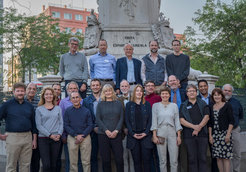Causality in the Law and in the Social Sciences, Porto, Portugal, 2019

Causality is a key concept in the law and in the social sciences. Yet the word “causal” does patently not mean the same in both domains. In law, the object of interest is a single event: has one specific action led to one specific outcome? In the social sciences, the object of interest is a regularity: does the absence or presence of a definable impulse engender a definable effect? When the law wonders whether causality has been established, it is engaged in postdiction: given the evidence (that has been proven to the requisite standard): can the judge be sufficiently confident that defendant has acted in a way that impinged upon defendants protected sphere? When a social scientist wonders whether causality could be shown, she is engaged in prediction: if the identical event happened in an otherwise sufficiently comparable context, could one confidently expect that it would lead to the same outcome? The symposium has explored the difference with theoretical and empirical approaches, combining law, economics and philosophy.
Contributions by: Shahar Dillbary, Keith Hylton, Oren Bar-Gill, Jonah Gelbach, Charles Manski, Weyma Lübbe, Frederick Schauer and Barbara Spellman.
